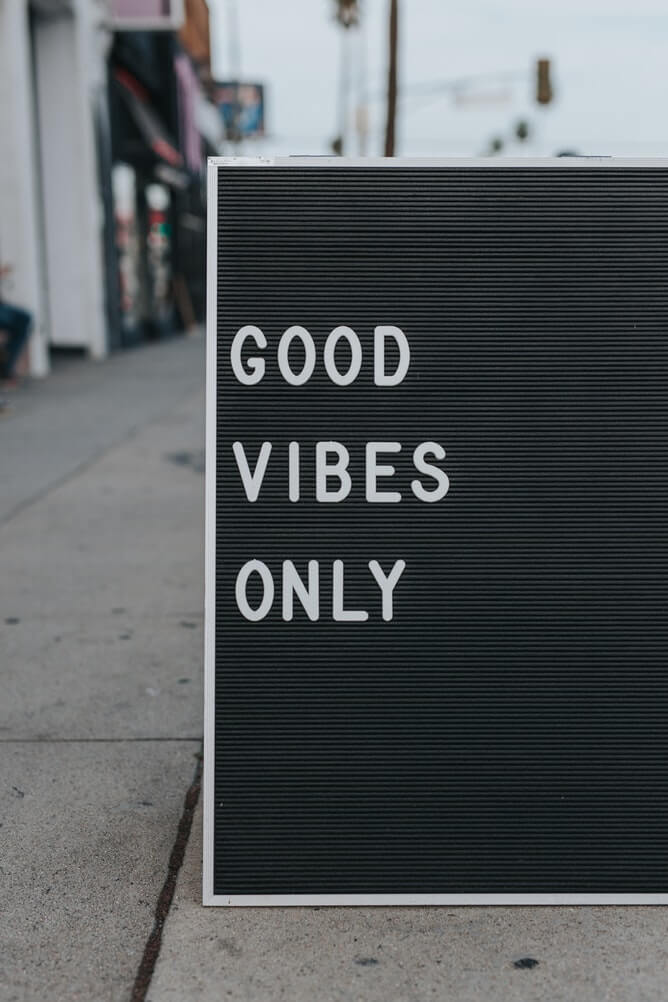After spending a month learning about happiness – and the important role that relationships play in this happiness – we wanted to dig deeper. What do we mean by relationships? What are the secrets to building healthy relationships? What’s the science behind how relationships contribute to our personal happiness and well-being? Here are our biggest learnings on the power of relationships and how to cultivate healthy ones.
It’s Not Just Romantic Relationships that Matter
Often the word relationship is used to discuss a romantic partner, however, relationships of all kinds – friends, co-workers, family, neighbors, social networks, etc. – can influence a person’s health and happiness. A lot of us fall into a trap of comfort and spend time with people who are physically closest to us without thinking about the positive and negative influences from these people.
Just because someone is near us, however, doesn’t make us have a healthy relationship with them. We’re not just bringing in that person, we’re bringing in their culture, their values, their baggage, the work they did or haven’t done on themselves. A lot of times if they haven’t done any of that work, they’re bringing their baggage in, and they’re going to dump it off on our doorstep and ask us to deal with it.
Avoid Value Vampires
One thing we’ve observed is that the people who tend to be the most negative of influences also happen to have a lot of free time. We call these people “value vampires”. It takes some relationship management skills, but value vampires should be avoided as much as possible.
Instead, it’s better to focus on having healthy relationships with people who can be considered “high-value.” By high-value we mean people who can give you the attention, approval, and acceptance that you are looking for yourself because that is what allows you to feel good. It’s people who can celebrate others’ wins, people who can cheer others’ on and encourage them, and people who are genuine and authentic.
High-value people are like the rising tide that lifts all ships. In contrast, “low-value” people tend to act out to get attention, behave selfishly and do not give easily to others.
Name and Evaluate Reference Group
Dr. David McCaulin of Harvard has done a lot of research around relationships and the power of connections. He calls the people who most influence someone’s life a “reference group.” The five most important people in someone’s life can be considered their reference group. It’s interesting to write these names down and consider how each affects our lives.
He has found that how this reference group acts can greatly influence an individual. One study showed that we’re 15% more likely to be happy when a direct connection is happy. There’s also research that shows that the reference group can influence a person’s exercise, eating, drinking and smoking habits. It seems that peer pressure, explicit or not, never goes away.
The Norm or Frame is Very Powerful
Another way to think about “peer pressure” is that community creates belief. In each community – work and social – there’s a standard for how things ought to be. This standard is called a norm or a frame.
Take exercise for example. If we surround ourselves with people who get up every single morning and workout. Naturally, we’re going to start to think working out in the morning is probably a good way to get it done. Let’s say we’re healthy and fit but one night, we go to a friend’s party and see that our friend has gained a little bit of weight. We may not have an opinion about it, but in some small way, the norm is now changed in our group. What is acceptable has changed. Unconsciously, it’s more normal to be chubby. These norms can be transmitted inside of our network. We’re influenced by all of them constantly and the norms shift. A lot of us aren’t even paying attention to some of the norms.
Friends of Friends (of Friends…) Also Influence Mental Health and Wellbeing
While it’s understandable that the people we spend the most time with affect our wellbeing, we were surprised to learn that we can also be influenced by friends of friends and more indirect relationships as well. Science also says that if the friend of our friend is happy, it increases our likeliness of being happy by 10%. When a friend of a friend of our friend is happy, our likeliness of being happy increases by 6%. As we grow our network with more positive-minded people, it’s likely to help in our pursuit of happiness as well.

Reducing Negative Influences Doesn’t Mean Being a Hermit
Once we identified the value vampires, we didn’t know what to do. Humans are complicated. Everyone has positive and negative qualities. It seems like we would have to live like a hermit and never interact with anyone to avoid any negativity. Instead, if we come across negativity – in the workplace or friendships – we choose not to engage in that conversation and may even speak up about the behavior.
We’re not saying we surround ourselves with yes-men and people who just agree with us no matter what. Instead, we’re talking about people who have a positive disposition, who know that happiness means greater meaning and purpose in one’s life and fostering healthy relationships and taking care of one another and being cooperative. These are all the signals that we’re looking for when we’re nurturing and cultivating our own network and our own relationships.
The Power of Healthy Relationships
As we noted when looking at norms and frames, relationships can have both positive and negative effects on behaviors, attitudes, worldview and outlook. This is true in social life, romance, business and entrepreneurship. Happiness begets happiness, and negativity begets negativity, even when relationships are a few degrees removed. It’s clear that building healthy relationships that are supportive, accepting and encouraging is important for success, wellbeing and happiness in all areas of our lives.



